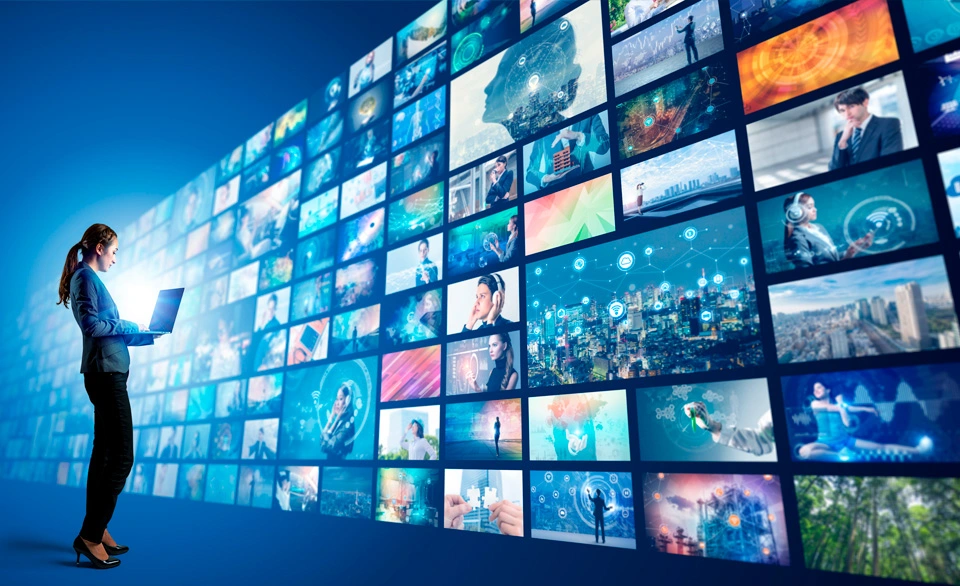Artificial Intelligence (AI) has rapidly transformed the entertainment industry, from the creation of virtual actors that blur the line between reality and fiction to highly personalized content recommendations that keep audiences engaged. This article explores the profound impact of AI on the world of entertainment, highlighting the innovations and opportunities it brings to the forefront.
Virtual Actors: Breathing Life into Fiction
In the realm of filmmaking and animation, AI has paved the way for the creation of virtual actors that can emote and engage with viewers on a whole new level. Traditionally, bringing fictional characters to life involved casting human actors, but AI-powered technologies are now changing the game.
Motion-capture technology, paired with AI algorithms, allows filmmakers to digitize actors’ performances and seamlessly integrate them into CGI-heavy productions. This technology was exemplified by the groundbreaking use of AI in movies like “Avatar” and “The Lord of the Rings” trilogy, where the line between reality and fantasy became increasingly blurred.
Furthermore, AI-driven character animation is enabling filmmakers to create characters that evolve and adapt based on audience reactions. These virtual actors can learn from viewers’ responses and adjust their performances accordingly, creating immersive storytelling experiences that were previously unimaginable.
Content Recommendation: Tailored to Your Tastes
When it comes to the world of streaming services and digital content, AI plays a crucial role in ensuring that viewers are served with content that resonates with their interests. Content recommendation algorithms, powered by machine learning and deep learning, have revolutionized the way we discover movies, TV shows, music, and more.
AI-driven recommendation engines analyse user data such as viewing history, preferences, and even the time of day to curate personalized playlists and suggestions. This not only enhances the user experience but also keeps subscribers engaged with the platform.
The success of platforms like Netflix and Spotify can be attributed, in large part, to their AI-driven content recommendation systems. By accurately predicting what users want to see or hear next, they keep viewers coming back for more. This, in turn, benefits both content creators and platforms as it drives higher engagement and retention rates.
Enhancing Creativity and Efficiency
AI isn’t just changing the way content is consumed; it’s also influencing content creation itself. Filmmakers, writers, and musicians are increasingly using AI tools to boost their creativity and streamline their workflows.
For instance, AI can help screenwriters generate plot ideas or even entire scripts based on popular trends and audience preferences. Music composers can use AI algorithms to generate background scores that perfectly match the mood of a scene. In animation, AI can assist in generating detailed backgrounds or even help with the creation of intricate visual effects.
Moreover, AI is being employed in post-production processes to save time and resources. It can automate video editing, colour grading, and sound mixing, allowing creators to focus on the creative aspects of their projects.
Challenges and Ethical Considerations
While AI brings numerous advantages to the entertainment industry, it also raises important ethical and creative questions. As AI-driven content creation becomes more prevalent, there is concern that it might homogenize artistic expression and creativity. Can AI truly replicate the depth and complexity of human storytelling and emotion?
Additionally, issues surrounding data privacy and algorithm bias come into play when recommending content to users. Striking a balance between personalization and respecting user privacy is an ongoing challenge.
AI’s presence in the entertainment industry is undeniable, with innovations ranging from virtual actors pushing the boundaries of storytelling to personalized content recommendations keeping viewers engaged. As technology continues to evolve, so too will the ways in which AI enhances both the creation and consumption of entertainment content.
However, it’s essential to approach these advancements with careful consideration of the ethical and creative implications. While AI offers exciting opportunities for the industry, it’s up to creators, technologists, and policymakers to ensure that it remains a tool that enhances human creativity rather than replacing it entirely.
As AI continues to shape the future of entertainment, the key lies in striking the right balance between technology and artistry.
















Leave a comment